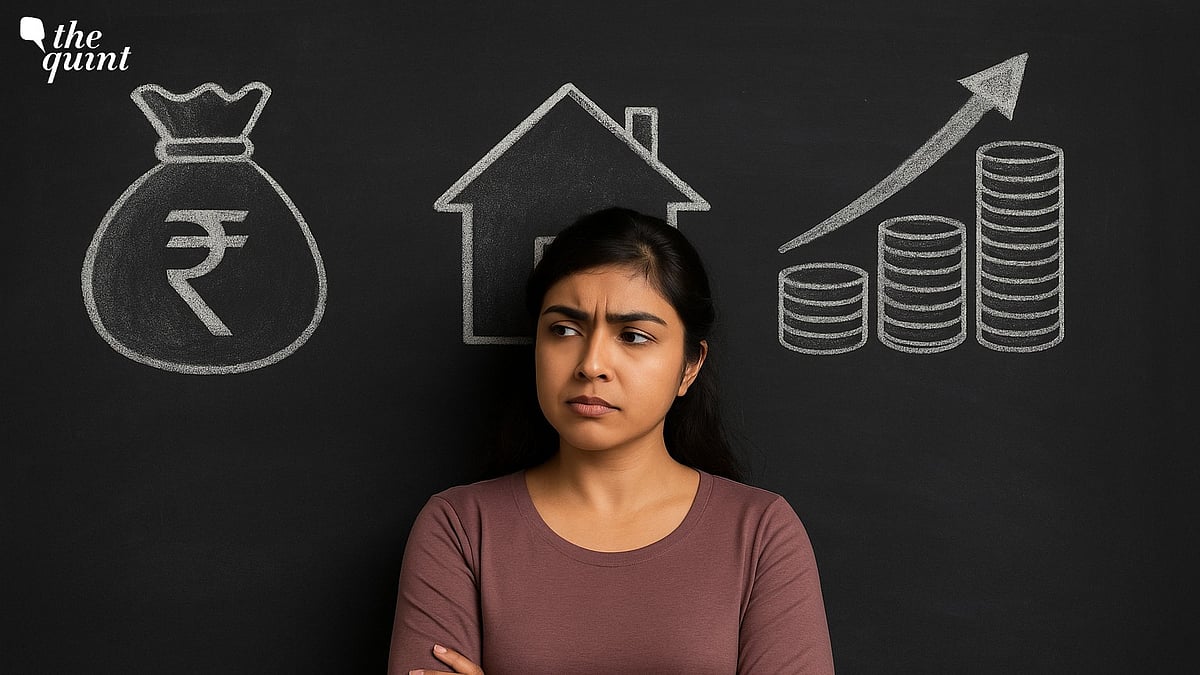She Earns, But He Owns: Why India’s Gender Wealth Gap Still Goes Unseen
We can’t just blame the system. It’s also the social scripts we’ve inherited.

advertisement
We’ve been talking about the gender pay gap for years, and it definitely deserves that spotlight. But there’s a quieter gap that exists and can be even more damaging in the long run. It’s called the gender wealth gap. It refers to a gap between how much wealth men and women actually own and not just earn. Chances are, most of us are living it without even realizing it.
According to the World Economic Forum’s Global Gender Gap Report 2025, India has slipped to 131st out of 148 countries, which is a two-rank drop from last year. This reflects the fact that Indian women have been facing barriers persistently, not only in the workplace but in every space where money, assets, and control matter. Even when women manage to close the income gap, they often still end up making significantly less wealth, which is something you not only earn, but also hold, grow and can claim as yours.
Let’s look at credit. A 2023 report by BharatLoan revealed that women accounted for just 10.67% of total loans disbursed, inching up to 10.81% in 2025. While this shows growth, the numbers are still low. Most young women under 30 are taking loans mainly for personal use, not for starting businesses or buying property. But in a country where credit helps in building long-term assets, women are missing out on wealth that can last for generations.
The investment space paints a similar picture. Today, 25 fund houses employ only 49 female fund managers, a number that barely scratches the surface in a ₹40-lakh-crore industry. Meanwhile, data from Policybazar shows that women do invest but differently. Around one-third of their investments go into retirement and children’s future. This shows that women have a conservative, safety-first mindset. Sensible, yes, but it also means that have fewer opportunities to build wealth over time.
Title vs. Truth
Buying property in a woman’s name can get you 1–2% lower stamp duty in many states. This policy was designed to encourage female ownership. However, if she doesn’t contribute her own funds, the asset may not legally be hers. The Allahabad High Court recently ruled that property bought by a husband in the wife's name, without actually using her financial contribution, won’t count as her personal asset. That kind of legal precedent shows how fragile female ownership still is.
Women’s land ownership, where it exists, has shown transformational power. Studies show that land titles in women’s names actually improve their decision-making skills, strengthen financial security and increase social acceptance, especially in rural India.
Equality on paper ≠ Equality in practice
The UN’s Food and Agriculture Organization report reveals that if women had equal access to productive resources, they could raise farm yields by 20–30%. Equal land rights are even enshrined in Goal 5 of the UN Sustainable Development Goals but on the ground, we’re far from achieving that.
Now if you zoom out, there’s retirement plan too. Women’s pension payouts are 25–30% lower than men’s, according to the World Bank. Not because of smaller paychecks, but due to career breaks, part-time work, and informal jobs that don’t offer long-term benefits as such. Add to that a chronic underinsurance problem, and you begin to see a pattern. Even women who are 'earning well' may be one emergency away from financial fragility.
And we can’t just blame the system. It’s also the social scripts we’ve inherited. Many women still take career breaks for caregiving, and while we applaud that choice, we rarely talk about the long-term financial impact. Others leave investment decisions to their spouses or fathers, not because they’re incapable, but because money management was never spoken to them.
So how do we fix this?
We should start by rethinking financial literacy- less jargon and more life-stage coaching. Women need access to money and ownership both. Assets in their name. Portfolios they understand. Insurance that covers them independently. Some fintech platforms are also building women-first products.
What we really need is a cultural shift. Financial independence should be as basic as owning a phone or casting a vote. Because wealth is power. And until more women have both, the gap isn’t going anywhere.
So next time you check your salary slip, also check your balance sheet. What do you really own? What’s growing while you sleep? And what story will your wealth tell ten years from now?